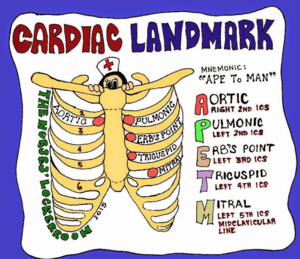14119183
ANA - hypothyroidism
Resource summary
Question 1
Question
Nursing responsibilities:
Monitor blood pressure, heart rate and rhythm, respiratory rate and lung sounds. [blank_start]Hypotension[blank_end] indicates decreasing peripheral blood flow.
maintain open airway.
Avoid [blank_start]cool[blank_end] temperatures. Increase [blank_start]room[blank_end] temperature if necessary and use additional bed blankets. Chilling increases metabolic rate and puts increased stress on the heart.
monitor medication therapy (overdose with thyroid medications possible)
assess thyroid hormone [blank_start]levels[blank_end]
Encourage [blank_start]fluid[blank_end] uptake
monitor and administer [blank_start]glucose[blank_end] as needed
Monitor skin for [blank_start]redness[blank_end] or lesions due to impaired skin integrity
Use a pressure injury [blank_start]risk assessment[blank_end]
Answer
-
Hypotension
-
cool
-
room
-
levels
-
fluid
-
glucose
-
redness
-
risk assessment
Question 2
Question
Patient education:
Patient is likely to have [blank_start]constipation[blank_end] due to reduced appetite, decreased food uptake, decreased [blank_start]activity[blank_end] level, reduced water [blank_start]absorption[blank_end].
Encourage fluid uptake
Discuss ways to maintain [blank_start]high-fibre[blank_end] diet
Encourage [blank_start]activity[blank_end] as tolerated
Teach person measures to maintain skin integrity - use [blank_start]warm[blank_end] not hot water, [blank_start]gentle[blank_end] motions when cleaning
Encourage or teach person to [blank_start]turn[blank_end]/change positions every 2 hours to promote [blank_start]optimal[blank_end] circulation
Teach range of motion exercises
Explain the need to alternate activity with [blank_start]rest[blank_end] periods.
Ask people to report any breathing difficulties, chest pain, heart palpitations or dizziness. Explain that activity increases stress on the [blank_start]heart[blank_end] and should be balanced with rest. (Symptoms of [blank_start]cardiac[blank_end] stress include dyspnoea, chest pain, palpitations and dizziness)
Answer
-
constipation
-
activity
-
absorption
-
high-fibre
-
activity
-
warm
-
gentle
-
turn
-
optimal
-
rest
-
heart
-
cardiac
Want to create your own Quizzes for free with GoConqr? Learn more.

